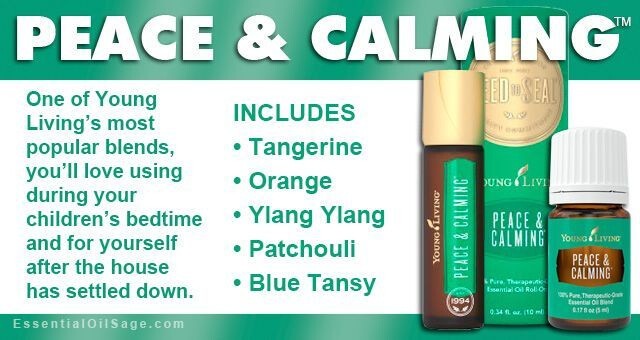Borderline Personality Disorder (BPD) is often misunderstood and stigmatized, despite being a legitimate mental illness. Unfortunately, this can lead to a lack of understanding and empathy for those who suffer from BPD, which makes it difficult for them to get the help they need. In this blog, we will explore some of the common misconceptions about BPD and discuss the symptoms of the disorder in detail.
Misconception #1: People with BPD are manipulative and attention-seeking.
One of the biggest misconceptions about BPD is that those diagnosed with the disorder are manipulative and attention-seeking. This is far from the truth. People with BPD struggle with intense emotions and feelings of abandonment and rejection, which leads them to engage in impulsive behavior and emotional outbursts. This is not an attempt to manipulate others, but rather a coping mechanism for dealing with their overwhelming emotions.
Misconception #2: BPD is not a serious mental illness.
BPD is a serious mental illness that can greatly impact a person's life. Those with BPD may experience intense mood swings, unstable relationships, and feelings of emptiness or worthlessness. In severe cases, individuals with BPD may engage in self-harm or suicidal behavior. Without proper treatment, BPD can have a profound impact on a person's quality of life.
Misconception #3: BPD is untreatable.
While BPD can be a challenging disorder to treat, it is not untreatable. With the right therapy and medication, individuals with BPD can learn to manage their symptoms and improve their mental health. Dialectical Behavior Therapy (DBT) has been found to be particularly effective in treating BPD, as it focuses on skills training to help individuals regulate their emotions and improve their social relationships.
behaviorSymptoms of BPD:
Intense fear of abandonment or rejection
Unstable or intense relationships
Impulsive behavior (e.g., substance abuse, binge eating, reckless driving)
Mood swings and emotional outbursts
Chronic feelings of emptiness or worthlessness
Suicidal ideation or self-harming
In conclusion, BPD is a legitimate mental illness that is often stigmatized and misunderstood. Misconceptions about the disorder can prevent those who suffer from it from getting the help they need, which can have devastating consequences. By understanding the symptoms of BPD and debunking common misconceptions, we can reduce the stigma surrounding this disorder and ensure that those who struggle with it receive the support they need to lead a healthy and fulfilling life.
Hey there, mental health warriors! Have you ever found yourself sinking deeper into your depression or anxiety, and without even knowing it, you start pushing the people closest to you away? You're not alone. It's a common thing to do when we don't mean to - it's simply a manifestation of some of the symptoms of mental illness. In this blog post, we will explore what happens when you try to survive your mental health on your own, and what you can do instead. So, let’s dive into the art of pushing people away when you have a mental illness and don’t mean to.
- Why do we do it?
First of all, let’s explore the reasons why we push people away. When things get challenging and our mental health is taking a toll on our lives, it's common to feel like you're alone. We don't want to burden our loved ones with our problems, so we try and resolve things on our own. That's where the problem starts. Depression and anxiety feed on isolation. Without realizing it, we can shut ourselves off from the world without even realizing it and that’s when we start pushing people away.
- Recognizing the pattern
Every one of us has our own unique experience when it comes to mental illness, but we all experience some sort of patterns. Once we recognize the pattern of how we push people away when things start to spiral, we can start to mitigate the harm done by taking action. We can be honest with our loved ones about our experience, we can share our feelings, communicate our needs, and ask for help if necessary.
- Connect with others who understand
One of the best things about seeking support is that it allows us to connect with people who understand. Mental health support groups, online forums, or even social media can be a great place to find people who get it. You can gain valuable insights into how others push people away when they don’t mean to. It's helpful to be able to relate to people, especially when it comes to mental health, so finding a community can be so beneficial.
- Take Action
Now that we know why we do it, how to recognize the pattern, and how to connect with others, the next step is to take action. Here are a few tips to keep in mind:
- Reach out to a mental health professional for support
- Keep in touch with your loved ones and communicate openly about your mental health journey
- Create a plan of action for when you’re feeling low or when you’re going into ‘shut-down’ mode
- Remind yourself that self-care is non-negotiable when it comes to mental health
- Using essential oils to help relax and maintain your stress level as well as using fidgets to move around in your hand. Ask me how and I can direct you to oils that help me.
- Final Thoughts
Take it easy on yourself if you find yourself pushing people away. It's tough to deal with mental health, and it's even more challenging to communicate that experience effectively. But it's worth remembering that you don't have to go through it alone. If you can give yourself space to feel and connect with others who understand, you take the first step towards healing. So, keep going and don't forget to be kind to yourself. In this blog post, we discussed why we push people away when we have mental illness, how to recognize the pattern, and the importance of connecting with others. Remember, we all deserve support and love, and it’s okay to ask for help when we need it. We hope this post helped you understand how you can navigate the art of pushing people away when you have a mental illness and don’t mean to. You’ve got this!
I have been living with my partner who has Borderline Personality Disorder for the last six years. It has been a challenging experience for me but also an enlightening one. I want to share my story and provide some insights and tips for people who live with someone with mental illness.
Educate yourself - the first thing I did when my sister was diagnosed was to read and learn about the disorder. This helped me understand her symptoms and how to live with them. There are fantastic resources online, books, and support groups that can help.
Communication is key - open and honest communication is vital when living with someone with mental illness. You need to talk about their symptoms and how to handle them in case of a crisis. I have found that talking to my sister when she is calm and in a good mood has been helpful in avoiding emotional breakdowns.
Be supportive - people with mental illness require support both physically and emotionally. Medication, therapy, and regular checkups are necessary for people with bipolar disorder. Accompanying your loved one to these appointments and being there during their low moments can make a difference.
Take care of yourself - living with someone with mental illness can take a toll on your mental and emotional health. It is essential to take care of yourself and seek support if needed. Meeting with friends, going to therapy, and practicing self-care can prevent burnout.
Celebrate little victories - mental illness can be overwhelming and sometimes, it can be easy to focus only on the negative aspects. Celebrating small victories like going to therapy regularly, taking medication as prescribed, and being able to manage their symptoms can go a long way in improving the person's self-esteem and mental health.
Living with someone with mental illness can be a trying and rewarding experience. It is essential to educate yourself, communicate openly, be supportive, take care of yourself, and celebrate small victories. The most important thing you can do is to be there for your loved one, to support them, and to remind them that they are not alone in their journey.
Communication is key - open and honest communication is vital when living with someone with mental illness. You need to talk about their symptoms and how to handle them in case of a crisis. I have found that talking to my sister when she is calm and in a good mood has been helpful in avoiding emotional breakdowns.
Be supportive - people with mental illness require support both physically and emotionally. Medication, therapy, and regular checkups are necessary for people with bipolar disorder. Accompanying your loved one to these appointments and being there during their low moments can make a difference.
Take care of yourself - living with someone with mental illness can take a toll on your mental and emotional health. It is essential to take care of yourself and seek support if needed. Meeting with friends, going to therapy, and practicing self-care can prevent burnout.
Celebrate little victories - mental illness can be overwhelming and sometimes, it can be easy to focus only on the negative aspects. Celebrating small victories like going to therapy regularly, taking medication as prescribed, and being able to manage their symptoms can go a long way in improving the person's self-esteem and mental health.
Living with someone with mental illness can be a trying and rewarding experience. It is essential to educate yourself, communicate openly, be supportive, take care of yourself, and celebrate small victories. The most important thing you can do is to be there for your loved one, to support them, and to remind them that they are not alone in their journey.
John 3:16 is perhaps one of the most famous verses in the Bible. "For God so loved the world that He gave His only begotten Son, that whoever believes in Him shall not perish but have eternal life." It's a message of love, hope, and promise that has inspired believers for centuries. But did you know that it could also be paired with grounding essential oils? Yes, you read that right- John 3:16 and grounding oils. Let's explore why these two seemingly different things might just be a match made in heaven.
First, let's talk about what grounding oils are. Grounding oils are essential oils that are used to promote a sense of stability, calmness, and balance. These oils come from roots, trees, and resins and are known for their earthy, grounding scents. Some common grounding oils include patchouli, vetiver, and frankincense. So what do grounding oils have to do with John 3:16? Well, let's look at the verse again: "For God so loved the world". God's love is all-encompassing and grounding oils can help us feel more rooted in that love, allowing us to experience a deeper sense of peace and security.
Secondly, let's consider the second half of the verse: "that whoever believes in Him shall not perish but have eternal life". Believing in something can be hard, especially when we can't physically see it or touch it. This is where grounding oils can come in handy. When we inhale the earthy scents of grounding oils, our mind and body can be reminded of the physical presence of the earth beneath our feet. This can help us feel more connected to the world around us and remind us that there is something larger than ourselves at play.
Thirdly, let's talk about how we can use grounding oils in conjunction with John 3:16. One way to do this is to create a grounding oil blend and use it during prayer or meditation. Combine 3-4 grounding oils together (i.e. patchouli, frankincense, and vetiver) in a roller bottle with a carrier oil such as fractionated coconut oil. Roll the blend onto your wrists or the bottoms of your feet before beginning your meditation or prayer practice. As you inhale the scent, recite John 3:16 to yourself. This can help you feel more grounded in your faith and more connected to the world around you.
Fourthly, let's consider the power of scent. Scent is incredibly powerful and can be used to anchor memories, emotions, and experiences. When we pair grounding oils with John 3:16, we're creating a powerful sensory experience that can help us tap into the spiritual significance of the verse. This can be especially helpful during times of stress or uncertainty when we need a reminder of God's love and presence in our lives.
John 3:16 and grounding oils might seem like an unusual pairing, but they both share a common goal- to ground us in love and faith. Whether you're a believer looking to deepen your spirituality or someone looking for ways to create a more grounded and calm existence, incorporating grounding oils into your daily practice can be a game-changer. So next time you recite John 3:16, consider pairing it with your favorite grounding oil blend and see how your experience shifts. Who knows, it might just be a match made in heaven.





